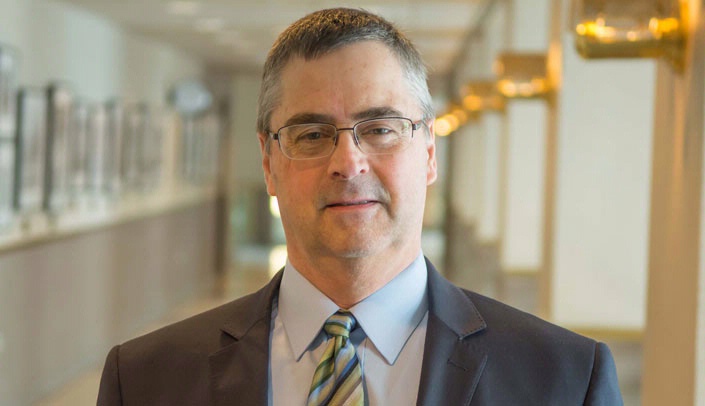The Healthcare Worker Exposure Response & Outcomes (HERO) Registry launched this month, inviting U.S. healthcare workers to share clinical and life experiences in order to understand the perspectives and problems faced by those on the COVID-19 pandemic front lines.
The HERO research program leverages PCORnet+, the National Patient-Centered Clinical Research Network, and is funded by the Patient-Centered Outcomes Research Institute (PCORI).
Learn more about the HERO Registry and register.
The HERO Registry is asking hundreds of thousands of health care professionals to participate, including nurses, therapists, physicians, emergency responders, food service workers, environmental services workers, interpreters and transporters — anyone who works in a setting where people receive health care.
“We’re calling on UNMC and Nebraska Medicine health care workers to share their perspectives so that we can understand and provide answers to the problems they face in real time — and over time,” said James McClay, M.D., UNMC site investigator for PCORnet.
“We know the stress that our front-line health care workers are under and appreciate everyone’s service,” he said. “The HERO Registry is yet another way for our heroes to help fight the pandemic by sharing their experience and participating in research that answers crucial questions about how to protect ourselves.”
The goals of the registry are to engage health care workers in a research community, understand their experiences and interests through ongoing surveys, and track critical health outcomes associated with caring for patients with COVID-19, such as stress and burnout. The HERO Registry will help speed clinical studies that address unmet needs for health care workers.
“The HERO registry is an attempt to form a large national community of health care providers to help us understand the impact of our current COVID-19 pandemic crisis,” said Aaron Barksdale, M.D., UNMC professor of emergency medicine and an emergency department physician. “Not only will it address the current effect on our health and well-being, but it provides the opportunity to conduct and participate in clinical trials that may direct us in ways to decrease the magnitude of similar infectious outbreaks in the future. It is extremely important that health care workers take advantage of this opportunity to collaborate on such a large scale.”
There is no cost to enroll in the HERO Registry and registration takes only a few minutes. Health care workers can participate as much or as little as they like in surveys and other opportunities.
The registry will follow established protocols and data guidelines to keep health care worker information secure.
